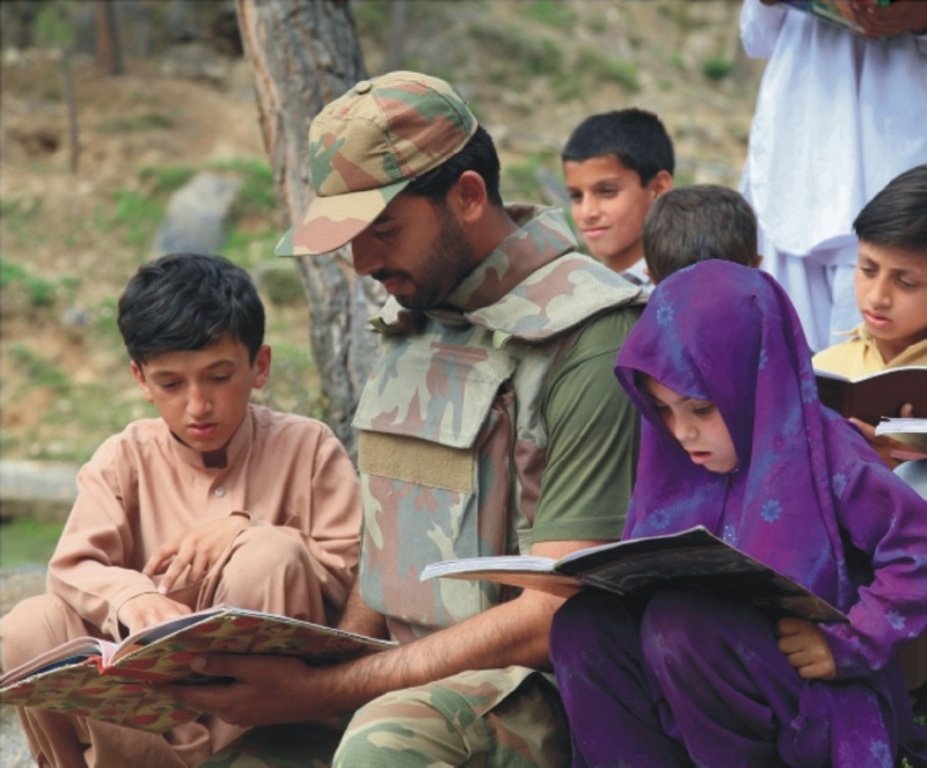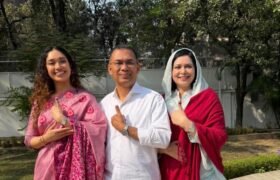The human mind governs all our actions. This powerful tool can be programmed with education in any direction. Exposure of the human mind to violent ideas makes it the epicenter of violent acts while the provision of good education can make it resistant to such violent ideas.
But it does not mean that education alone can prevent an individual from committing violent acts under any pretext. Good quality education can certainly help create the conditions that make it difficult for violent extremist ideologies and acts to proliferate.
Pakistan’s north western part remained in grip of worst violence and insurgencies. More than 70,000 Pakistani lost their lives after the 9/11 and subsequent War on Terror and its fallout on Pakistan. Terrorist organizations hunted and recruited uneducated youth of former FATA region. These were converted into agents of chaos carrying out all sort of violent actions from kidnapping to suicide bombings.
When Pakistan Army began operations against these agents, it was realized that the actual challenge is far bigger than what security forces met on battleground. Real battlefield was the ideologies which has polluted the minds of local youth to such an extent that they were willing to kill or get killed without asking any question. The challenge was not confined to Pakistan only. From Africa to Middle East, many of the countries lost their sovereignty not because of any externa invasion but due to similar indoctrinitioned youth who was denied quality education.

The root cause was recognized internationally and soon education was declared one of the most important tools for states to prevent the spread of violent extremism in any society.
Education is also an integral part of the United Nations Strategic Goals (UNSG)’s “Plan of Action to Prevent Violent Extremism (A/70/674)”. This important part of the action plan is called “Education, skills development and employment”. It is among the seven action areas identified in the UNSG’s Plan of Action and all the member states of the UN have been directed to implement educational policies geared towards this global cause.
As poverty and financial constraints have been recognized as key drivers behind the spread of extremism in societies, the UNSG action plan emphasizes ensuring the provision of quality education for every child.
But what does quality education mean? In simplistic terms, a quality education policy should include teaching respect for human rights and diversity, fostering critical thinking, promoting media and digital literacy, and developing the behavioral and socio-emotional skills that can contribute to peaceful coexistence and tolerance. These are challenging goals and demand a special focus on certain critical dynamics here.
Pakistan Army over the years have build and run multiple high standard educational insitutes in previously restive areas but the job is not completed fully yet as there are many areas in Baluchistan where a similar model is required along with other measures by the government. Just as the pathway to violent extremism is a complex and individual journey, there is no single set of solutions for the prevention of violent extremism through education. Educational responses will vary according to context, i.e. conflict situation, demographics, citizenship model, the arrangement between private/public providers, etc.
1 – Investment in education: It is important for the state to invest a certain part of GDP in early education, in particular early childhood education, from ages 3 to 8, to ensure that all children have access to inclusive, high-quality education, taking into account diverse social and cultural settings.
2 – Promotion of Global Citizenship: A major problem in underdeveloped nations like Pakistan is the lack of a sense of global citizenship and remaining isolated to world affairs from a young age. Education policy must be Implement education programs that promote “global citizenship”, soft skills, critical thinking, and digital literacy and explore means of introducing civic education into school curricula, textbooks, and teaching materials.
3- Capacity Building: Above mentioned task demands the capacity building of educationalists, researchers, and teachers and supports the goals of promotion of harmony and creating minds resistant to extreme views through critical thinking and social inclusion.
3 – Leave no one Out: It is critical for states to provide comprehensive primary through tertiary education, including technical and vocational education, and mentoring for all vulnerable minds, including the internally displaced peoples (IDPs) and refugees, through online and mobile technologies.
Most importantly, education policies can ensure that places of learning do not become a breeding ground for violent extremism. It is critical to ensure that educational contents and teaching/ learning approaches develop resilience to violent extremism in students’ minds. The role of education is not a reactive tool that must be applied after the spread of violent extremist ideologies neither it must be a tool to identify individuals who may potentially become violent extremists.




